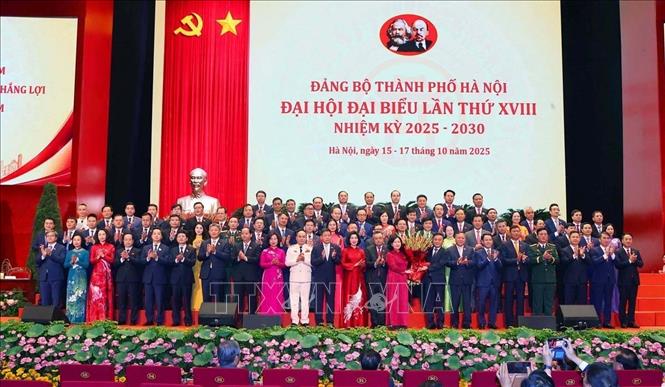
According to the Report of the Central Organizing Committee, out of 40 Congresses held, 11 Congresses carried out 4 contents and 27 Congresses carried out 2 contents, of which the Party Committee of the Army and the Party Committee of the Central Public Security carried out 3 contents.
In Conclusion No. 200-KL/TW issued on October 17, the Politburo and Secretariat highly appreciated the fact that Party committees and organizations at all levels have successfully organized Party Congresses at all levels according to the set plan, ensuring the requirements of Directive No. 45-CT/TW, dated April 14, 2025 of the Politburo and the directions and instructions of the Central Committee.
Take adequate time to discuss the Congress documents.
According to the Report, the congress program was built in accordance with Instruction No. 06-HD/TW dated June 9, 2025 of the Secretariat, organizing 2 preparatory and official sessions. The congresses elected the Presidium, Secretariat, and Delegate Qualification Examination Board with reasonable numbers and structures.
The Presidiums conducted the congress program in accordance with principles and procedures; the program was built specifically, in detail, and scientifically, with clear assignment and division of tasks, creating favorable conditions for the organization and operation of the congress.
The Secretariat and the Delegate Qualification Review Board have well implemented the congress regulations and the leadership and direction of the Congress Presidium. Through the delegate qualification review report, 100% of the delegates attending the congress met the standards, and no delegates violated their qualifications.
The congresses have thoroughly grasped the direction of the Politburo and the Secretariat, and spent adequate time discussing congress documents. The forms of discussion before and during the congresses were diverse; combining group discussions and direct speeches in the Hall (on average, each congress had 9-10 opinions).
In general, the content of the speeches was carefully prepared, the discussion atmosphere was lively and frank, demonstrating the sense of responsibility of the delegates attending the Congress.
Most opinions agreed with the draft documents submitted to the Central Party Congress and the 14th National Party Congress, highly appreciating the new points, especially the goals, tasks, and breakthrough solutions to be implemented in the 2025-2030 term. All discussion opinions were accepted, explained, and voted for approval by the Presidium at the Congress.
In the atmosphere of emulation to achieve practical achievements to welcome and create momentum for breakthroughs before the Congress, many localities have inaugurated a series of key projects. Each project and work that has been started and completed not only demonstrates the spirit of creative work and efforts to overcome difficulties, but also symbolizes the spirit of solidarity and the will to rise up of the entire Party, government and people.
Notably, in the context of the whole country promoting digital transformation, many Party Committees have comprehensively digitized the process, from roll call to voting, turning the Party Congress into a "paperless congress", pioneering the application of facial recognition technology (Face ID) to roll call delegates; documents and materials are digitized and implemented on a technology platform, replacing the method of using paper documents as before...
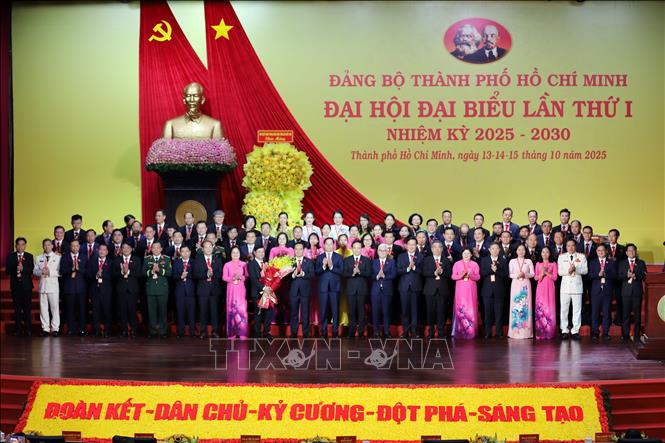
634 comrades were elected to the Executive Committee, 11 Secretaries and 32 Deputy Secretaries were elected.
At each Congress, along with discussing documents, setting out directions, tasks, goals, targets, and solutions for development in the coming time, the election and appointment of the Party Executive Committee is extremely important. The Party Executive Committee is the highest leadership body between two Congresses, responsible for leading the entire Party to successfully implement the Congress Resolution.
Through the summary of the congress results reports of 11 provinces and cities that were not merged or consolidated, the congresses elected 634 executive committee members; 164 standing committee members; 11 secretaries; 32 deputy secretaries and 10 heads of inspection committees. At the congresses, there were no nominations or candidacies (apart from the personnel list prepared by the Party Committee that convened the congress).
Regarding the Executive Committee, out of 634 elected comrades, 204 are participating for the first time (32.18%). The Executive Committee structure: 108 female comrades (17.03%); 133 ethnic minority comrades (20.98%); 52 comrades with scientific and technological qualifications (8.2%). 8/11 Party Committees (Cao Bang, Dien Bien, Lai Chau, Son La, Lang Son, Quang Ninh, Ha Tinh, Hue) ensure the proportion of female members participating in the Party Committee according to Directive No. 45-CT/TW of the Politburo, 9/11 Party Committees (Quang Ninh, Ha Tinh, Hue, Lai Chau, Nghe An, Lang Son, Son La, Hanoi, Dien Bien) have a proportion of cadres with scientific and technological qualifications participating in the Party Committee of 5% or more.
In terms of age, there are 39 comrades under 42 years old (6.15%), (Cao Bang and Lai Chau Party Committees ensure the proportion of young structure (10% under 42 years old); average age is 49.76.
100% of Party Committee members have university and post-graduate degrees; of which 473 have master's degrees (74.61%), 78 have doctorates (12.30%); 3 comrades have associate professor titles (Nghe An, Hue and Hanoi), 1 comrade has professor titles (Nghe An).
All 634 comrades elected to the Executive Committees have advanced degrees and bachelor's degrees in political theory.
Regarding the Standing Committee, out of 164 elected comrades, 39 are participating for the first time (23.78%). Structure of the Standing Committee: 22 are female comrades (13.41%), 11/11 Party Committees have female cadres participating in the Standing Committee of the Party Committee; 38 are ethnic minority comrades (23.17%).
Regarding age structure, there is 1 standing committee member (Ha Tinh) under 42 years old (0.61%); 84 comrades from 42 to 52 years old (51.22%) and 79 comrades over 52 years old (48.17%); the average age is 51.53.
100% of the Standing Committee members have university and post-graduate degrees; of which 113 have master's degrees (68.90%), 23 have doctorates (14.02%); 1 comrade has the title of associate professor (Nghe An).
The congresses elected 11 secretaries, including 3 who participated for the first time. There was 1 female, 1 ethnic minority, and 8 provincial party secretaries who were not local people (Cao Bang, Lai Chau, Quang Ninh, Nghe An, Ha Tinh, Hanoi, Dien Bien, Thanh Hoa). After the congress, the Politburo decided to transfer and appoint 3 secretaries of Lang Son and Son La provincial party committees and the Hue city party secretary to new assignments.
Among the 11 elected Secretaries, 3 are between 42 and 52 years old, 8 are over 52 years old, with an average age of 54.72.
Of the 32 comrades elected as Deputy Secretaries, 11 are participating for the first time (34.38%). The specific structure: 5 comrades are female cadres (15.63%), 8 comrades are ethnic minorities (25%); 13 comrades are from 42 to 52 years old (40.63%); 19 comrades are over 52 years old (59.37%), the average age is 52.2.
The congresses have elected 10 comrades as Chairmen of the Inspection Committee, but one congress has not yet elected the position of Chairman of the Inspection Committee.
The congresses of 13 party committees (Army Party Committee, Central Public Security Party Committee, Cao Bang, Lang Son, Quang Ninh, Lai Chau, Ha Tinh, Nghe An, Hue, Son La, Thanh Hoa, Hanoi, Dien Bien) elected 353 official delegates and 25 alternate delegates to attend the 14th National Party Congress.
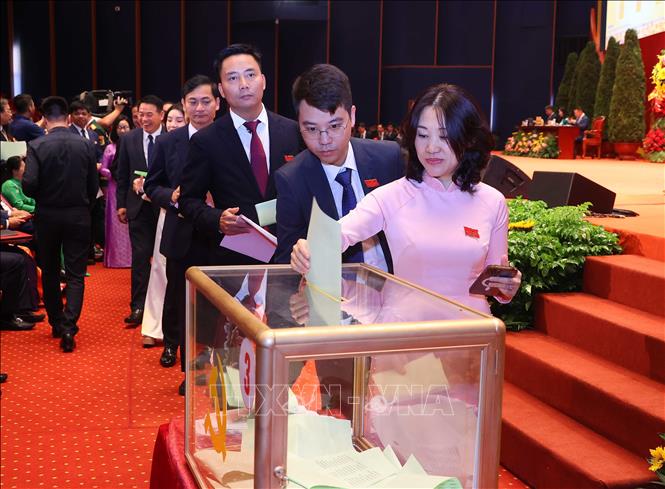
Appointed 1,669 Executive Committee members, 23 Secretaries, 99 Deputy Secretaries
Regarding the appointment results, through the synthesis of the congress results reports of 23 local party committees (for the Party Committee of the Fatherland Front, Central mass organizations; Party Committee of the National Assembly; Party Committee of the Government; Party Committee of the Army; Party Committee of the Central Public Security and Party Committees of Central Party agencies, the Politburo will decide on the appointment after the 14th National Party Congress), the party committees have appointed 1,669 executive committee members; 461 standing committee members; 23 secretaries; 99 deputy secretaries and 23 heads of inspection committees.
Of the 1,669 comrades appointed to the Executive Committee, 43 are participating for the first time (2.58%). The Executive Committee includes 323 female comrades (19.35%), 174 ethnic minority comrades (10.43%), 184 comrades with scientific and technological qualifications (11.02%), and 2 comrades who are religious (Khanh Hoa, Lam Dong).
17/23 Party Committees ensure the proportion of female members participating in the Party Committee according to Directive No. 45-CT/TW of the Politburo, 20/23 Party Committees achieve the proportion of cadres with scientific and technological qualifications participating in the Party Committee of 5% or more. There are 50 comrades under 42 years old (3.0%); the average age is 50.34.
100% of Party Committee members have university and post-graduate degrees; of which 1,194 are masters (71.54%), 189 are doctors (11.32%), and 9 are associate professors.
100% of the comrades appointed to the Executive Committee have advanced degrees and bachelor's degrees in political theory (100%).
Of the 461 comrades appointed to the Standing Committee, 6 are participating for the first time (1.3%). Standing Committee structure: 71 female comrades (15.4%); 52 ethnic minority comrades (11.28%); 22/23 Party Committees have female cadres participating in the Standing Committee of the Provincial Party Committee and City Party Committee (Hai Phong has no female cadres participating in the Standing Committee of the City Party Committee).
Age structure: There is 1 comrade under 42 years old (0.22%); 245 comrades from 42 - 52 years old (53.04%) and 215 comrades over 52 years old (46.64%); average age is 51.61.
100% of the Standing Committee members have university and post-graduate degrees; of which 293 have master's degrees (63.56%), 72 have doctorates (15.62%). Two comrades have the title of Associate Professor (Can Tho, Ho Chi Minh City).
The Congresses have appointed 23 Secretaries (3 comrades participating for the first time); including 1 female comrade (Quang Ngai, transferred to the Central after the Congress), 2 comrades are ethnic minorities (Tuyen Quang, Lam Dong). There are 21 Provincial Party Secretaries who are not local people (after the Congress, the Politburo decided to transfer and appoint 2 comrades, the Secretary of the Quang Ngai Provincial Party Committee and the Secretary of the Da Nang City Party Committee, to new assignments).
In terms of age, there are 9 comrades from 42 - 52 years old and 14 comrades over 52 years old, the average age is 53.3. In terms of professional qualifications, 4 comrades have university degrees, 10 comrades have master degrees and 9 comrades have doctoral degrees.
The congresses appointed 99 Deputy Secretaries; of which 6 were participating for the first time (6.06%). Of the 99 Deputy Secretaries, 17 were female (17.17%), 10 were ethnic minorities (10.10%); 48 were between 42 and 52 years old (48.48%); 51 were over 52 years old (51.52%), with an average age of 51.64.
The 27th Congress has appointed 1,069 official delegates and 106 alternate delegates to attend the 14th National Party Congress.
Effectively implement strategic breakthroughs and key tasks
Looking back at the 2020-2025 term, Party Committees have closely followed the Party's guidelines and policies, strictly implemented the leadership and direction of the Politburo and Secretariat in synchronously and effectively implementing strategic breakthroughs, key tasks and groups of solutions.
In the overall picture, 32/34 localities nationwide are estimated to achieve GRDP growth of 8% or more, of which 13/34 localities have growth of 10% or more. Excluding 2021, a year heavily affected by the COVID-19 pandemic, the average GDP growth in the 2022-2025 period is expected to reach 7.2% per year, exceeding the set target.
The revolution in streamlining the organizational apparatus of the political system has been widely deployed, including the internal structure of agencies and organizations; from the central to local and grassroots levels; in the system of agencies and organizations of the Party, State, National Assembly, Government, Fatherland Front and socio-political organizations, administrative units have also been arranged synchronously.
The Government apparatus alone has been reduced from 22 ministries and 4 ministerial-level agencies to 14 ministries and 3 ministerial-level agencies (reducing 8 focal points). At the local level, a 2-level local government model (provincial and communal levels) has been implemented, eliminating the district level. The whole country has been rearranged to 34 provinces and cities. In particular, at the grassroots level, the number of commune-level administrative units has been reduced from more than 10,000 to 3,321 communes, a reduction rate of up to 67.9%. After the rearrangement, the political system in localities operating under the 2-level local government model (provincial and communal levels) has initially operated smoothly and effectively...
According to General Secretary To Lam, this is a policy that comes from a long-term strategic vision for national development, at least for the next 100 years. Streamlining the political system, merging provinces, not organizing district levels, and merging communes is not simply adjusting the organizational apparatus and administrative boundaries, but also adjusting economic space, adjusting the division of labor, decentralization, and allocation of resources for development.
Completing and arranging positions of Party committees and authorities
In Conclusion 200-KL/TW, the Politburo and the Secretariat requested Party committees and organizations at all levels, based on the results of the Party Congress, to urgently arrange, consolidate, and assign Party committee and government positions to soon stabilize the organization and apparatus; focus on directing the implementation of the Congress Resolution, promulgate an Action Program with specific projects, plans, and tasks that can be implemented immediately in practice; promote emulation movements, create momentum and confidence in the entire Party entering the new term.
The Politburo and Secretariat concluded that it would continue to deploy the arrangement of cadres and positions that are not local people, as approved in principle by the Politburo and Secretariat, to soon stabilize the organizational apparatus and leadership cadres, and implement the Resolution of the Congresses of Party Committees directly under the Central Committee.
The 14th National Congress of the Party, scheduled to be held in early 2026, is an important political event of the Party, a major event of the country, a special milestone on the path of development, opening a new era, "the era of national rise", "autonomy, confidence, self-reliance, self-strengthening, national pride"; at the same time, it is the time to vigorously carry out a comprehensive and synchronous revolution in arranging and streamlining the organizational apparatus, improving the efficiency, effectiveness and efficiency of the political system.
The successful organization of the Party Congresses at all levels for the 2025-2030 term is of special significance. This is not only a large-scale political activity for the entire Party and people, but also a premise for the successful organization of the 14th National Congress of the Party.
Source: https://baotintuc.vn/chinh-tri/dai-hoi-dang-bo-cac-cap-dan-chu-trach-nhiem-khi-the-moi-20251019132436663.htm



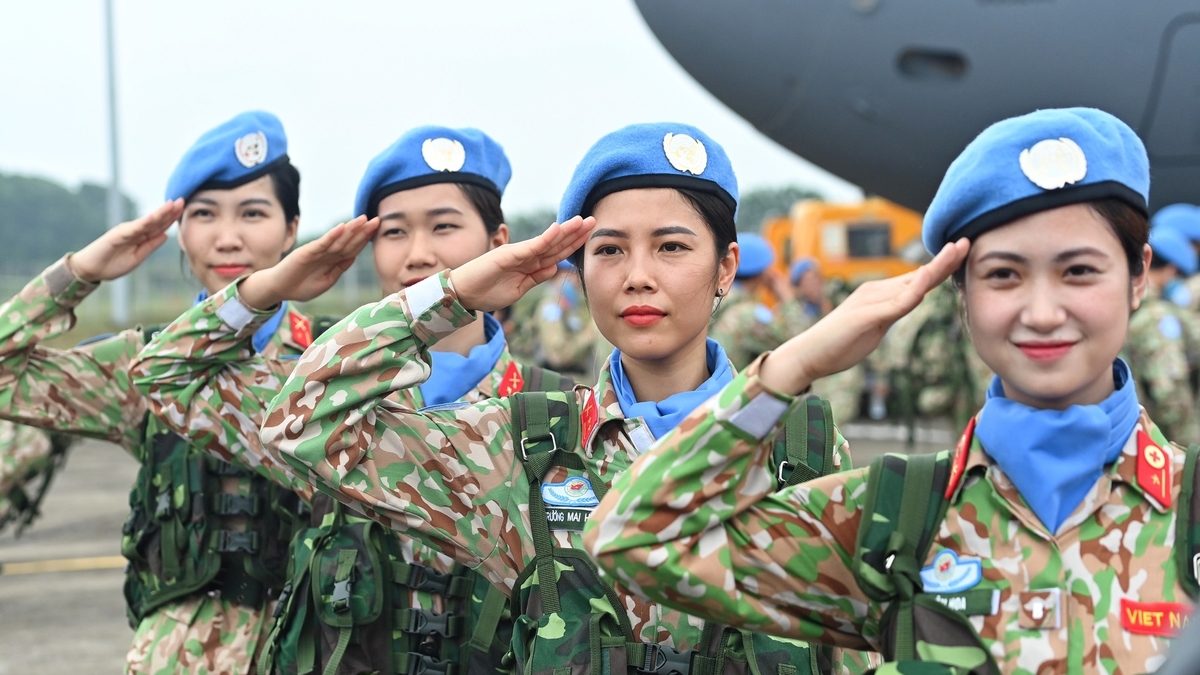






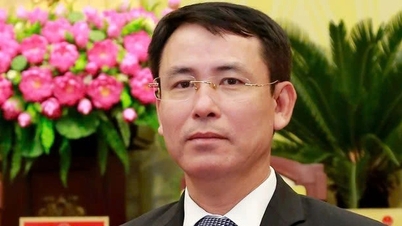

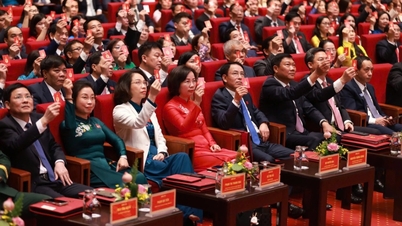
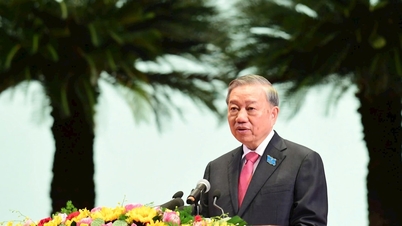

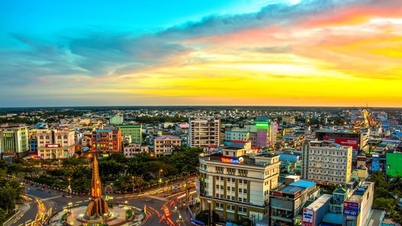
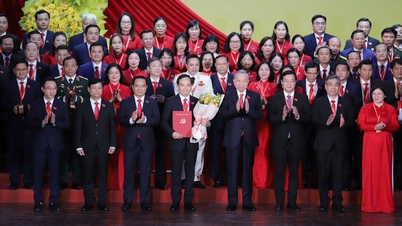

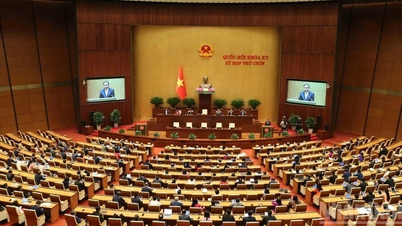

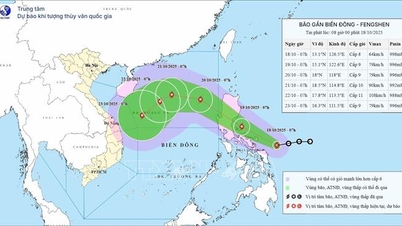
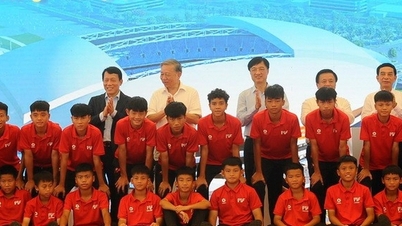

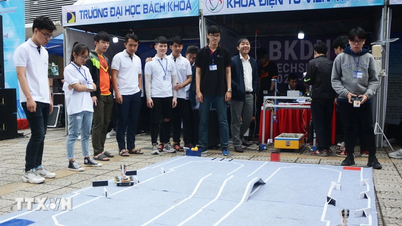








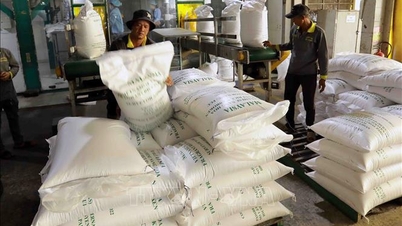
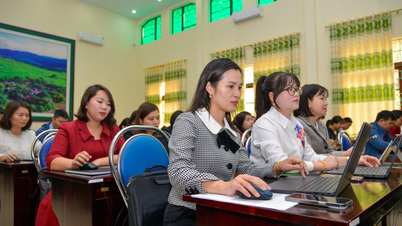
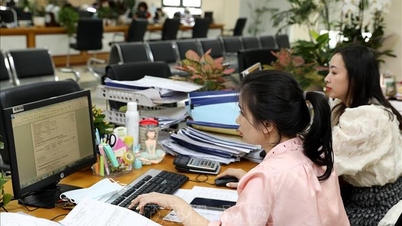

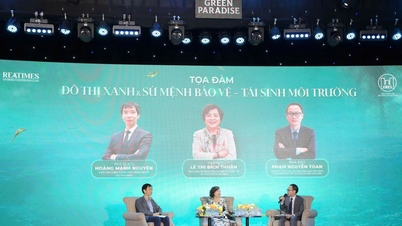

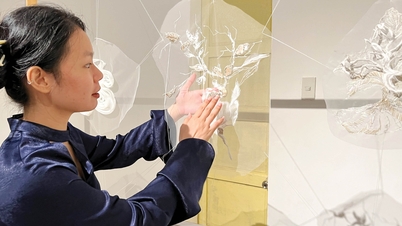

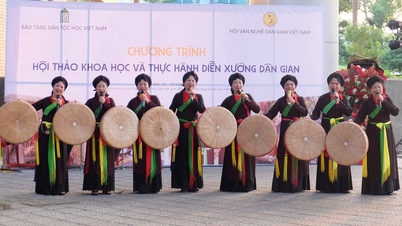


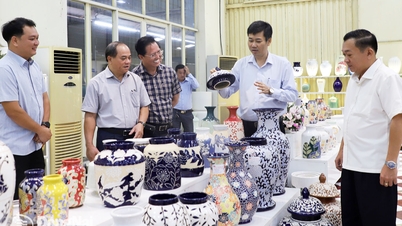







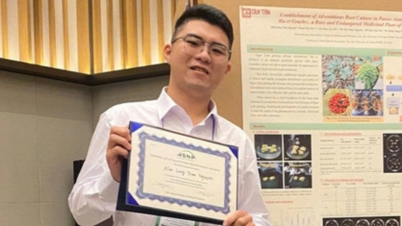



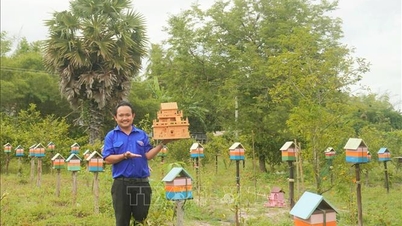


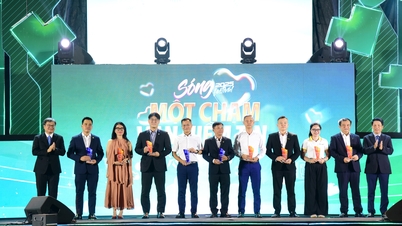












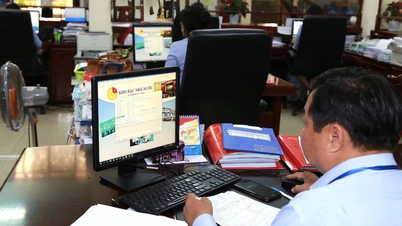

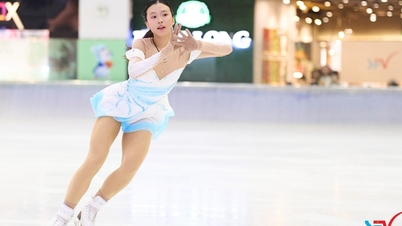

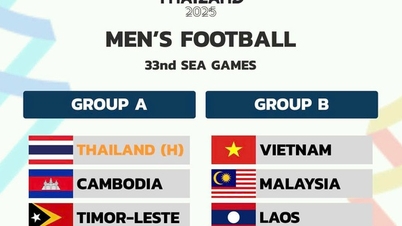

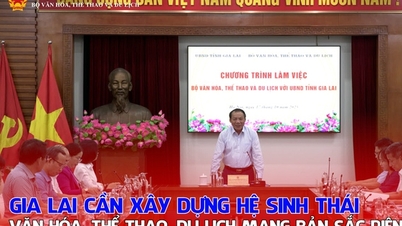
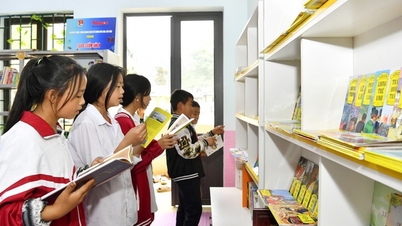

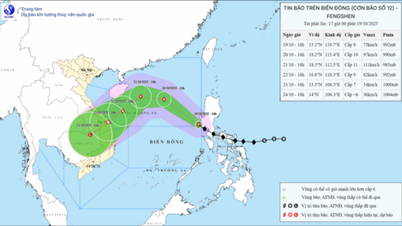


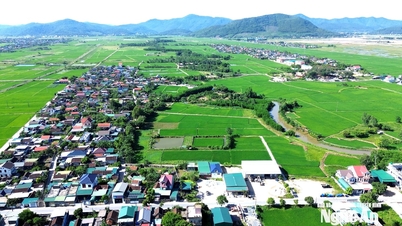
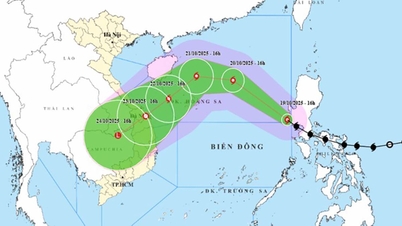

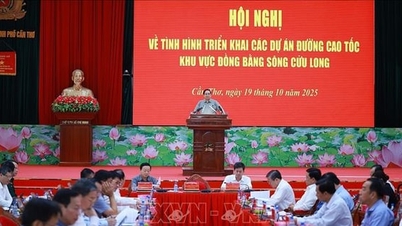














Comment (0)